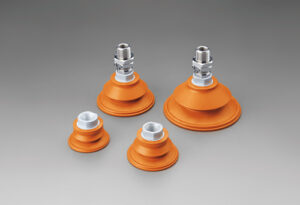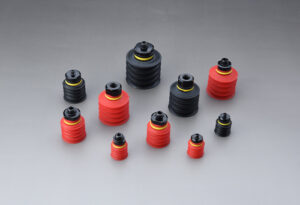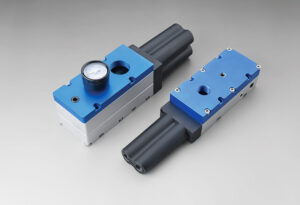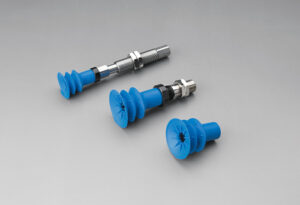Introduction
Custom suction cups are pivotal in various industries, serving as reliable tools for gripping, lifting, and holding objects of different shapes and sizes. When purchasing custom suction cups, understanding how to optimize their adhesion performance for various surface and environmental conditions is crucial. In this article, we’ll delve into the fundamentals of suction cup adhesion, explore factors affecting adhesion performance, and guide you in making informed decisions when choosing the proper custom suction cups.
Understanding the Basics
Suction cup technology relies on the simple yet effective principle of creating a vacuum seal between the cup and the object’s surface. This seal generates a pressure differential, causing the cup to adhere to the surface with a firm grip. Custom suction cups are designed to accommodate specific applications, ensuring optimal adhesion.
Suction cup manufacturers offer various materials, each with unique adhesion properties. These materials are typically elastomers, such as silicone, Nitrile, or Polyurethane, and are selected based on factors like the object’s material, surface condition, and the required level of grip.
Customization is critical to ensuring the best adhesion performance. It involves tailoring suction cup designs to match your specific application needs. This includes selecting the cup’s appropriate size, shape, and material composition.
Factors Affecting Adhesion Performance
To optimize the adhesion performance of custom suction cups, it’s essential to consider the following key factors:
1. Surface Properties: The characteristics of the object’s surface have a significant impact on adhesion. Surface texture, roughness, and material composition all play a role. For example, smooth and non-porous surfaces like glass may require a different suction cup material than rough and uneven surfaces like wood or concrete. Suction cup manufacturers offer a range of options to match these diverse surface requirements.
2. Environmental Conditions: Adhesion performance can vary under different environmental conditions. Temperature fluctuations, humidity levels, and contaminants can affect the sealing capability of suction cups. Some custom suction cups are designed to withstand extreme temperatures or corrosive environments, making them suitable for demanding applications.
3. Material Selection: Choosing the suitable material for your custom suction cups is crucial. Silicone-based suction cups are versatile and often used for their durability and resistance to wear and tear. Nitrile and Polyurethane suction cups offer specific advantages regarding chemical resistance and flexibility. The material selection should align with your application’s surface properties and environmental conditions.
In the upcoming sections, we will explore how to customize suction cup designs to meet specific needs and discuss the importance of testing and quality assurance in ensuring consistent adhesion performance.
In optimizing adhesion performance, it’s important to mention that vacuum suction cups for glass are particularly relevant for applications where a secure grip on glass surfaces is essential. These cups are designed with the unique properties of glass in mind and can provide excellent adhesion under various conditions.
Customization Options
Customization is a crucial aspect of optimizing adhesion performance with custom suction cups. Here are some essential customization options to consider:
1. Size and Shape: The size and shape of the suction cup should match the object’s dimensions and contour. Custom suction cup manufacturers can create various sizes and shapes, ensuring a precise fit for your application. This enhances the contact area between the cup and the object, improving adhesion.
2. Durometer: Durometer refers to the hardness of the suction cup material. Different durometers are suited to other tasks. For instance, a softer durometer may be ideal for delicate objects, while a harder durometer provides a firmer grip. Customization allows you to select the optimal durometer for your specific needs.
3. Bellows or Flat Design: Suction cups come in both bellows (convex) and flat designs. Bellows cups are ideal for curved surfaces, while flat cups are better suited for flat objects. Customization enables you to choose the right cup design for your application.
4. Fittings and Accessories: Custom suction cups can be equipped with various fittings and accessories to enhance performance. This includes vacuum generators, filters, and check valves. These additions can improve vacuum control and sealing, contributing to better adhesion.
By working closely with suction cup manufacturers, you can tailor these customization options to match your unique requirements. Whether you need specialized cups for handling fragile glass products or robust cups for heavy-duty lifting, customization ensures that your suction cups are optimized for peak performance.
Testing and Quality Assurance
Ensuring custom suction cups’ consistent and reliable performance is paramount, especially when tailored to specific applications. This is where testing and quality assurance come into play.
1. Real-World Testing: Conducting real-world testing is essential before integrating custom suction cups into your processes. This involves applying the suction cups to actual objects and surfaces they will encounter in your application. If necessary, you can identify potential issues by testing in situ and fine-tuning the design or material selection.
2. Quality Control Measures: Collaborate closely with your chosen suction cup manufacturer to establish robust quality control measures. This includes inspecting the cups for manufacturing defects, verifying material integrity, and conducting performance tests to ensure they meet your specifications. Reputable manufacturers will have rigorous quality control processes in place.
3. Monitoring and Maintenance: Monitoring their performance is vital once custom suction cups are used. This includes checking for wear and tear, verifying seal integrity, and ensuring that environmental conditions haven’t adversely affected adhesion. Proper maintenance, such as cleaning and replacing worn cups, can significantly extend their lifespan and performance.
By investing in thorough testing and quality assurance procedures, you can have confidence in the reliability of your custom suction cups, even in demanding and critical applications.
Case Studies
Let’s explore some real-life case studies demonstrating the successful application of custom suction cups in different industries. These examples illustrate how customization and optimization can lead to improved adhesion performance:
Automotive IndustryIn the automotive sector, where precision and efficiency are paramount, custom suction cups are used extensively in automated assembly lines. Manufacturers have adopted specialized suction cups with unique shapes and materials to handle various car parts. The optimization of adhesion performance has led to faster production and reduced errors during assembly.
1.Electronics Manufacturing
The delicate nature of electronic components demands precision handling. Custom suction cups designed with soft durometers and intricate shapes are utilized in electronics manufacturing. These cups ensure gentle yet secure pick-and-place operations, preventing damage to sensitive components.
2.Glass Handling
In the glass industry, where fragile materials are common, vacuum suction cups designed explicitly for glass applications have proven invaluable. These cups provide exceptional adhesion on glass surfaces, even in challenging conditions. Whether lifting large sheets of glass or handling delicate glassware, custom suction cups offer reliability and safety.
3.Food and Beverage Packaging
Custom suction cups find application in the food and beverage packaging sector, where hygiene and speed are critical. Specially designed cups made from FDA-approved materials ensure a clean and secure grip on packaging materials, contributing to efficient and sanitary packaging processes.
These case studies demonstrate the versatility and effectiveness of custom suction cups across various industries. By tailoring suction cup designs to meet specific needs, businesses can optimize adhesion performance, improve productivity, and reduce costly errors.
Conclusion
In the world of manufacturing and material handling, the optimization of adhesion performance with custom suction cups is essential. These versatile tools are tailored to specific applications, ensuring a secure grip on objects of varying shapes, sizes, and surfaces.
Thank you for reading this comprehensive guide on optimizing adhesion performance with custom suction cups.








